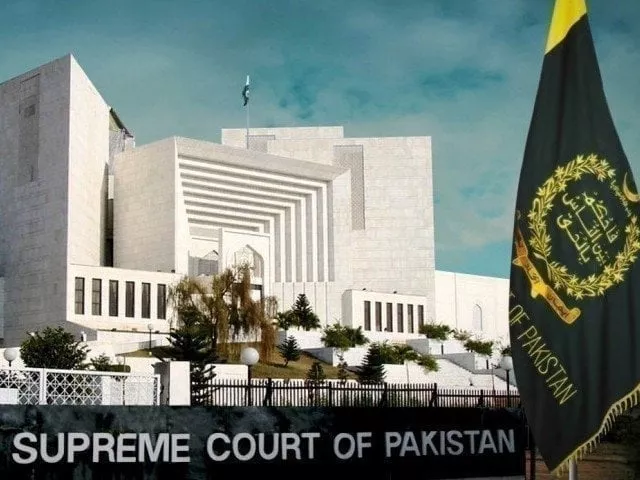Key Points:
-
Judgment Reserved on Military Trials for Civilians
-
Pakistan’s Supreme Court has reserved its judgment on appeals challenging the trial of civilians in military courts, particularly those involved in the May 9, 2023, protests.
-
A six-member bench, headed by Justice Aminuddin Khan, concluded hearings on 38 intra-court appeals.
-
-
Background of the Case
-
The case originates from an October 2023 Supreme Court ruling that declared military trials of civilians unconstitutional.
-
The earlier verdict came in response to petitions against prosecuting suspects accused of attacking military installations during the May 9 riots.
-
-
Current Status of Convictions
-
Despite the court’s earlier ruling, military courts had already sentenced 85 PTI activists to prison terms ranging from two to ten years.
-
In January, the military granted clemency to 19 individuals on humanitarian grounds.
-
-
Government’s Defense of Military Trials
-
Attorney General Mansoor Usman Awan argued that the May 9 attacks were pre-planned, targeting 39 military sites across Punjab, KP, and Sindh.
-
He emphasized that Pakistan faces unique security threats, justifying strict legal measures.
-
-
Disciplinary Actions Against Military Officers
-
Three senior officers (a Lt. Gen., Brigadier, and Lt. Col.) were forcibly retired without benefits for failing to prevent the attack on Lahore’s Jinnah House.
-
Fourteen other officers were denied promotions due to unsatisfactory performance during the riots.
-
-
Judicial Scrutiny of Military Accountability
-
Justice Mandokhail questioned whether military personnel faced criminal proceedings, to which the AG replied that only disciplinary actions were taken, as no crimes were committed.
-
The judge noted that under the Army Act, criminal accountability should accompany departmental action when necessary.
-
-
Upcoming Short Order
-
The court is expected to issue a concise ruling later this week.
-
The Supreme Court’s impending decision will determine the legality of trying civilians in military courts, a contentious issue with significant legal and political implications. While the government defends the trials as necessary for national security, critics argue against bypassing civilian judicial processes. The court’s ruling will shape Pakistan’s approach to balancing military justice with constitutional rights.







